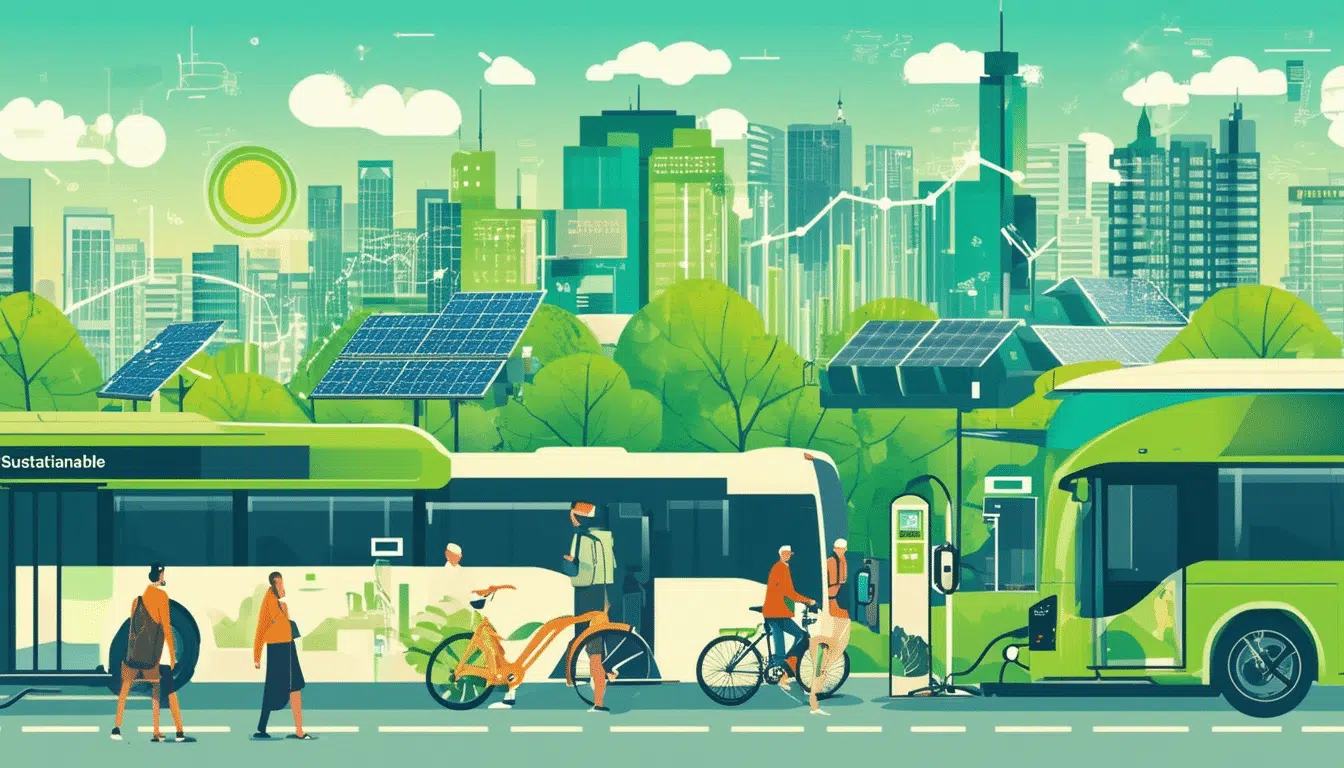The role of sustainable mobility in reducing fuel expenditure

Sustainable mobility has become a crucial element in addressing current environmental and economic challenges. As cities grow and problems related to congestion and pollution intensify, this form of mobility not only aims to provide more environmentally friendly means of transport but also plays a vital role in the reduction of fuel expenditure. By incorporating alternatives such as the use of electric vehicles, efficient public transport, and car-sharing systems, sustainable mobility allows for a decrease in dependence on fossil fuels, optimizes resources, and ultimately leads to significant savings at both personal and community levels. The adaptation of infrastructures and policies that encourage these changes can transform not only the quality of air in our cities but also the economy of households and businesses that implement these practices.
Sustainable mobility presents itself as a key strategy in the fight to reduce fuel expenditure. As concerns about climate change and the scarcity of energy resources grow, integrating more responsible transport alternatives becomes not only an environmental necessity but also an economic option for users. This article explores how implementing sustainable mobility practices can result in considerable fuel consumption savings.
What is sustainable mobility?
Sustainable mobility refers to an approach that seeks to balance transportation needs with environmental preservation. This includes the use of less polluting means of transport, such as bicycles, public transport, and electric vehicles. By promoting the use of these means, dependence on fossil fuels—which are the main source of polluting emissions—is avoided.
Reducing fossil fuel consumption
The implementation of efficient driving practices and the use of vehicles powered by renewable energies have a direct impact on reducing fossil fuel consumption. For example, electric vehicles consume significantly less energy per kilometer traveled compared to combustion engine cars. This results in considerable savings on gasoline or diesel, which in turn translates into reduced costs for users.
The impact of urban mobility on fuel expenditure
Cities, being the nucleus of mobility, play a crucial role in reducing fuel expenditure. Promoting car-sharing or shared mobility systems is essential for optimizing resource use. By decreasing the number of vehicles on the streets, not only are existing resources better utilized, but congestion is also reduced, and consequently, the fuel expenditure associated with traffic jams is lowered.
Savings in health and environmental costs
In addition to direct savings on fuel, the development of sustainable mobility contributes to improving air quality and reducing greenhouse gas emissions. This has a positive impact on public health, as fewer carbon and other pollutant emissions lead to lower healthcare costs, benefiting society as a whole.
Sustainable transport methods as a solution
The variety in transport methods also allows citizens to choose options that benefit both their wallets and the environment. Bicycles, for example, in addition to being an excellent option for exercise, are an economical and ecological alternative for short distances. Similarly, the use of efficient public transport, such as electric buses, can drastically reduce individual fuel expenditure, generating significant savings for users.
Emerging technologies and their influence
Innovations in the transport sector are also fundamental to advancing sustainable mobility. The implementation of technologies that optimize energy efficiency is driving the transition towards more rational fuel expenditure. These technologies offer practical solutions that allow drivers to reduce consumption through intelligent vehicle usage monitoring and management systems.
Conclusion: The need for a shift in mobility
It is undeniable that sustainable mobility plays a crucial role in reducing fuel expenditure. Adopting lifestyles that promote the use of integrated and ecological transport alternatives is not only beneficial for individual economies but also contributes to a healthier and more sustainable future for all. By pivoting towards more sustainable solutions, a future emerges with less dependence on fossil fuels and notable economic savings.
For those interested in diving deeper into how electric trucks are revolutionizing logistics transport, they can read more here. Likewise, Renault is working on combining combustion technology with more ecological alternatives, which can be explored here. Finally, a car-free lifestyle model can be observed in Culdesac, which details the experience here.
By exploring the future of electricity and emerging technologies that optimize fuel use, a deeper understanding of how sustainable mobility can transform our cities and economies opens up.
Sustainable mobility has become a fundamental pillar in facing the challenge of reducing fuel expenditure. Through various transport alternatives, such as bicycles, car-sharing, and electric vehicles, resource use is optimized and dependence on fossil fuels is minimized. This transition towards more sustainable transport modalities not only contributes to environmental protection but also leads to significant cost savings for users.
The implementation of efficient driving practices is crucial in this context. With small modifications in driving habits, such as maintaining a constant speed and avoiding sudden accelerations, a notable reduction in fuel consumption can be achieved. These actions, when practiced on a large scale, can result in collective savings that would benefit the economy at a national level.
Moreover, the increase in efficient and accessible public transport is another key aspect of promoting sustainable mobility. By encouraging the use of collective transport, a decrease in private vehicles on the streets is promoted, which translates into less fuel consumption and lower expenses for citizens. Integrating transport systems that are intermodal and offer ecological alternatives becomes essential in our cities.
It is essential that governments, businesses, and citizens collaborate in promoting policies that favor sustainable mobility, as its adoption can lead to a significant reduction in fuel expenditure. With each step towards sustainability, the door opens to new transport models that are not only more economical but also more responsible towards the environment. In this way, sustainable mobility is positioned not only as a necessity but as an opportunity to improve our quality of life and that of the planet.




